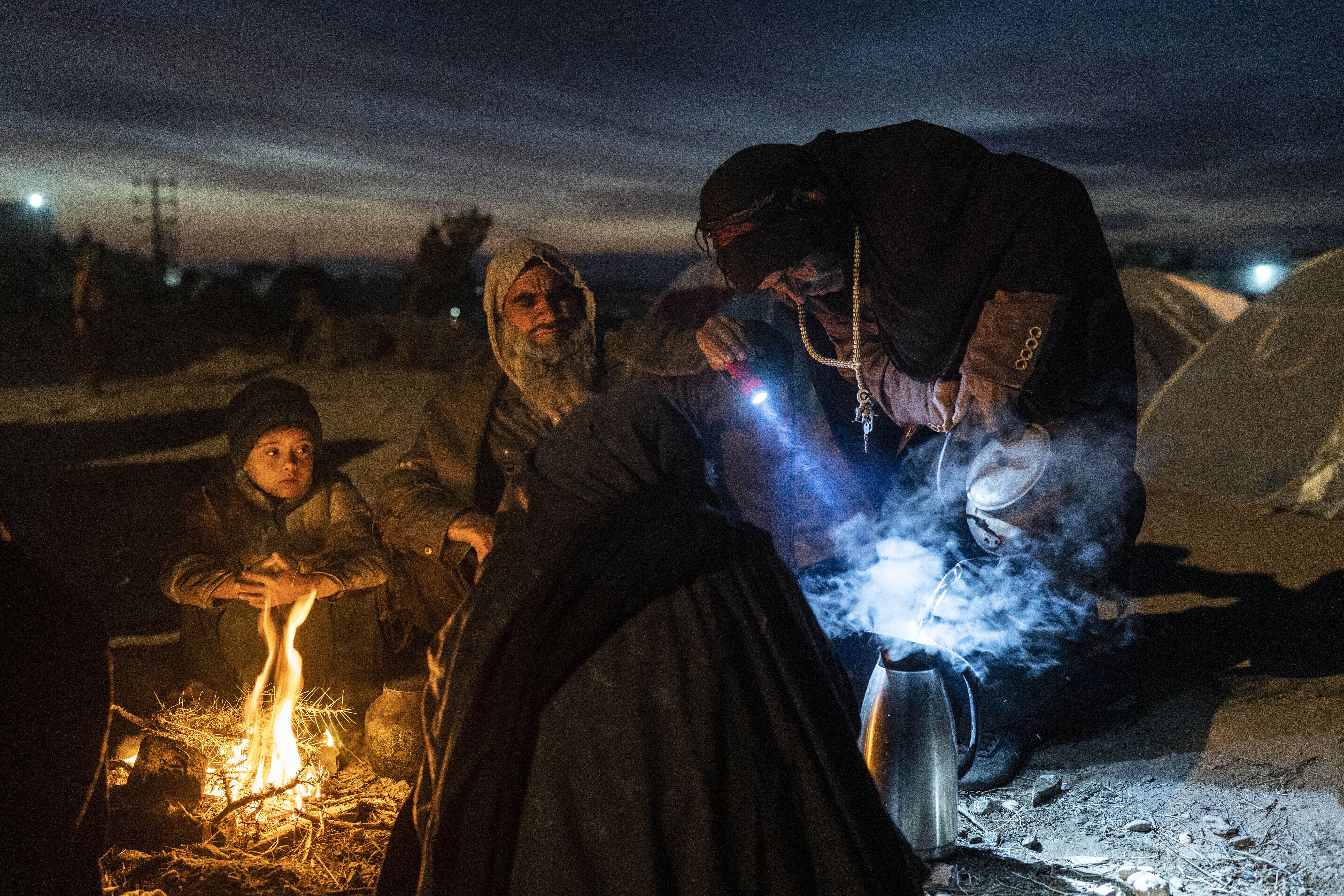US Special Envoy for Yemen Tim Lenderking says the solution to the war in Yemen is diplomatic, not militaristic
Tim Lenderking, the US special envoy for Yemen, traveled to Yemen and the surrounding countries more than a dozen times over the past year.
Lenderking is trying to promote a diplomatic solution to the war in Yemen, a conflict that’s created what the UN has called the world’s worst humanitarian crisis. Tens of thousands of people have been killed in the fighting, and millions more have been driven to the brink of starvation.
He joined The World’s host Carol Hills from his office in Washington.
Carol Hills: We sometimes call the conflict in Yemen a civil war. The Yemeni government fighting the Houthi rebels. But it’s Saudi Arabia that’s kept up the pressure on the Houthis all these years. They control Yemen’s airspace. They blockade Yemen’s seaports. And the Houthis launched drones and missile attacks on Saudi Arabia. How do you get the Houthis and Saudis to actually talk to each other?
Tim Lenderking: Carol, you’re right. It is basically a civil conflict, but it’s been complicated by the presence of outside actors. And so, one of the first principles that we approach in the United States is to get outside actors out of the conflict. And that’s a priority for this administration and certainly part of the solution that the president, the secretary of state, has asked me to push on. So, it’s a matter of getting enough leverage and pressure on the warring parties to realize that their aims will be better achieved through negotiation rather than continuing to fight, which does lead to the world’s worst humanitarian crisis that you mentioned.
You mentioned trying to get the outside actors out of the scene. Who are the outside actors?
Apart from Saudi Arabia, whom you’ve mentioned, other Gulf countries are involved in one way or another, but the main issue is really Iran here because Iran plays a very detrimental role. They continue to arm, train, equip the Houthis. They continue to try to smuggle weapons into Yemen in defiance of UN Security Council resolutions. This is very, very troubling, of course. Just over two years ago, they actually attacked Saudi Arabia itself, setting Saudi Arabia’s oil platforms aflame. So, the key factor that really plays the most detrimental influence, I think, in our view, is Iran.
There’s sort of a big dilemma in Yemen, which is that in some ways, the Houthis have already won the war in terms of facts on the ground. But I mean, your objective is partly to prevent them from creating government. But how do you deal with that fact that in many ways they’re in charge?
They do control the capital and many other parts of the country, but they’re not in control of the whole country. Nor is it clear that they would be able to or even wish to. So, we have to, first of all, deal with the reality that they are a strong military power, and I think the United States recognizes that. And for any negotiation that we would support happening, it’s clear that the Houthis would enjoy that level of recognition. But that doesn’t excuse some of the behavior and the attacks against Saudi Arabia. So, it’s very important that all the Yemeni parties, I think, come together. This is an essential part of American support here in a negotiation for a political solution to the conflict rather than the military solution, which we feel that the Houthis are pursuing armed and abetted by the Iranians.
I assume you’re in touch with the Yemeni government, and I assume you’re in touch with Saudi Arabia. But have you spoken directly with the Houthis?
We’re in touch with all the parties in Yemen. And there’s no restraint placed on my ability to conduct the kind of engagement that I need to do with the Yemeni parties. And so, we’re in it. We’re right in the thick of it. And I think that’s helpful to ensure that there are lines of communication open between the United States and everybody else.
But how have the Houthis responded to your overtures to them?
The Houthis, as I say, are responsive to US engagement, and I think despite the fact that they don’t like everything we do, everything we say, and that’s the same for us with regard to them. They do see that we have an important role to play.
Is it tough for you as an American to be considered an impartial mediator? I mean, the US government backed Saudi Arabia by selling it weapons. The Houthis are influenced by Iran, which is not friendly with the US. Why would the Houthis trust the US to broker a fair deal where Yemen’s concerned?
I think the Houthis understand that the US is the vital player here. And even though they have a slogan that says “Death to America” and “Death to Israel” on these various things, I mean, they realize that the US plays an indispensable role. There’s nobody else who can play the role that we play in terms of guaranteeing any type of ceasefire or any type of political settlement that will come out of this.
My final question is about something more lighthearted. I wondered if you saw the soccer match this week between the Yemeni boys team where they defeated the Saudi boys.
That was tremendous, and, you know, we tweeted out our congratulations to the Yemeni team, they’ve gotten so much positive reaction inside Yemen, it really hits on the fact of unity that it’s possible and again, around the sports team. As far as I can tell, all Yemenis are really proud of this moment. And again, we certainly extend our congratulations on their victory.
This interview has been lightly edited for clarity and length.
Sign up for our daily newsletter
